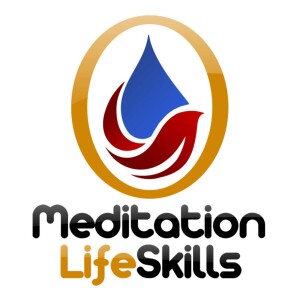
Meditation Life Skills Podcast - Learn How To Meditate
Education:How To

How To Be Mindful: Navigating Digital Information Overload
 2024-02-05
2024-02-05
Achieving Work-Life Balance: The Power of Mindfulness in the Workplace
Achieving a healthy work-life balance has become increasingly challenging. Many of us struggle to balance our professional responsibilities and personal commitments, leading to high stress levels and burnout at work and home. However, incorporating mindfulness into the workplace can be a powerful tool for achieving a better work-life balance.
Understanding mindfulness and its benefits
Mindfulness is the art of being fully aware and engaged in the present moment without judgment. It involves paying attention to our thoughts, emotions, and sensations with curiosity and non-reactivity.
PODCAST: How To Be More Mindful Mini-Course: Cultivating A Calm Mind
By practicing mindfulness, we can cultivate a more profound self-awareness and develop the ability to respond calmly and composedly to stressful situations.
Research has shown that mindfulness has numerous benefits for both individuals and organizations. From an individual perspective, practicing mindfulness can enhance emotional well-being, reduce anxiety and depression, improve focus and concentration, and increase resilience to stress.
In the workplace, mindfulness has been linked to higher job satisfaction, increased creativity and innovation, improved decision-making, and better interpersonal relationships.
One key benefit of incorporating mindfulness into the workplace is its positive impact on productivity and well-being. When fully present and engaged in our work, we can focus on the task at hand, leading to increased efficiency and effectiveness.
Mindfulness helps reduce distractions and improves concentration, allowing one to complete tasks more quickly and accurately.
Moreover, practicing mindfulness can also enhance our well-being by reducing stress levels. Chronic stress is a common problem in the workplace and can have detrimental effects on both our physical and mental health. By practicing mindfulness, we can train our minds to respond to stress more adaptively, reducing its negative impact on our well-being.
Start with small moments of mindfulness: Set aside a few minutes daily to practice mindfulness. This can be as simple as taking a few deep breaths and focusing on the sensation of your breath enter
Support the show
_________________________________________________
"Be the person your soul wishes you to be."
Don Weyant/Founder
Meditation Life Skills Podcast
Download and listen to at least one episode each week to start your path toward greater clarity, balance, and harmony with yourself and the world around you.
Whether you're a seasoned meditator or just getting started, each episode delivers practical tips and insightful knowledge to help you unleash the power of your mind, cultivate inner peace, and live a more fulfilling life.
Thank you for being a part of the Meditation Life Skills Podcast!
Disclaimer: This website or podcast should not be used to diagnose or treat a health problem or disease. If you have a medical condition or situation, contact your healthcare provider.
More Episodes
 2020-06-16
2020-06-16
 2019-02-22
2019-02-22
 2019-02-22
2019-02-22
Create your
podcast in
minutes
- Full-featured podcast site
- Unlimited storage and bandwidth
- Comprehensive podcast stats
- Distribute to Apple Podcasts, Spotify, and more
- Make money with your podcast
It is Free
- Privacy Policy
- Cookie Policy
- Terms of Use
- Consent Preferences
- Copyright © 2015-2024 Podbean.com




